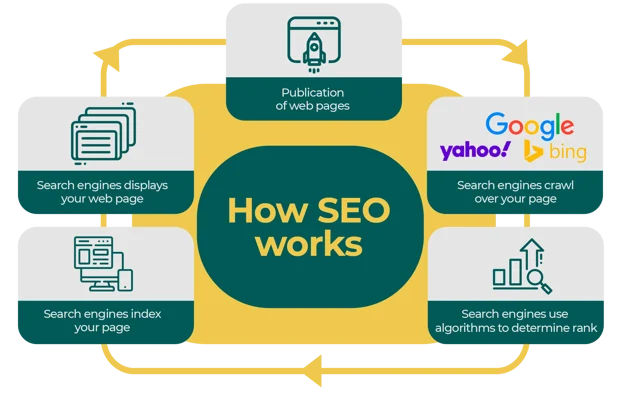Table of contents
- Create an explainer video.
- Use the right keywords.
- Optimize your site for conversions.
- Create a social media plan.
- Write a blog that covers industry topics and news.
- Research competitors’ SEO practices, and then do better than them.
- Promote your content on other sites using guest blogging and press releases.
- Great SEO doesn’t have to cost you a lot of money
- Conclusion
- FAQ’s
If you’re a startup founder, you know just how much time and resources your business requires. Between working with developers, designers, and marketers on the product itself—not to mention planning for marketing campaigns, hiring new employees and more—it’s easy to get overwhelmed. But there’s one thing every company needs before it can even start doing any of those things: traffic from search engines.
Create an explainer video.
Explainer videos are short, entertaining videos that explain a product or service. The best way to use them is to help people understand what your business does in an engaging way.
For example, if you’re selling a software product and want to show potential customers how it works, an explainer video could be used as part of the sales process or even just on the landing page of your website. You could also use this type of video as part of your content marketing strategy: create one that shows off some real world examples of how people have used it successfully (or unsuccessfully) before they buy!
Use the right keywords.
Keywords are the words that people search for when they want to find your business or product. You should always use the right keywords in your video title, description and tags so that it can be found by those searching for relevant information on YouTube or Google.
You can use Google’s Keyword Planner tool to find the right keywords to use. should also make sure that your video title has a number of different keywords in it, so that people searching for those terms will be able to find it.
Optimize your site for conversions.
When it comes to SEO for startups, optimizing for conversions is one of the most effective ways you can invest your time and money.
To define what a conversion is: it’s any action that leads a visitor to take some sort of action on your website–whether they purchase something or sign up for an email list.
Why is optimizing for conversions important? It’s simple: people who convert on your site are more likely to come back again in the future, which means more revenue and growth over time!
How do you optimize for conversions? There are many things you can do (and we’ll talk about some of them below), but one thing we recommend starting with first is making sure that every page has a clear call-to-action (CTA) button at the bottom that encourages visitors either by asking them directly what they want or prompting them with instructions on how best to get it from you
Create a social media plan.
Social media is the perfect platform for startups to build brand awareness, promote content and engage with customers. Social media can also be used to interact with prospects, as well as engage with influencers.
Here are a few tips:
Use social media to run contests and giveaways that will drive traffic back to your website or landing page.
Offer something of value in exchange for an email address so you can continue building relationships with potential customers over time (e-books, webinars).
Create unique content that relates directly back towards what you’re offering on your website/landing page (videos).
Write a blog that covers industry topics and news.
A blog is a great way to attract new visitors and build your brand. You can use it as a platform for sharing industry news, offering tips on how to use your product or service, or just plain talking about what’s going on in your company.
As you write each post, make sure to use keywords relevant to the topic at hand! For example: if you’re writing about SEO best practices for startups (like we did), then include terms like “search engine optimization” and “startup marketing strategy.” This will help search engines understand what each piece is about so that they can index it properly when people search those terms online–and eventually bring them right back here!
Research competitors’ SEO practices, and then do better than them.
One of the best ways to get started with SEO is to find out what your competitors are doing, and then do better than them. This can be done in a couple different ways:
Research their website on Google Search Console (or other similar tools) and see if there are any errors or warnings that could cause rankings issues for them. If so, fix those issues on your own site before moving forward with other strategies (if possible).
Next, compare your site’s ranking against theirs in search engines like Google or Bing by searching for keywords related to both businesses’ services/products; if there’s a difference between the two pages’ positions in SERPs (search engine results pages), look into why this might be happening–and then try improving upon it!

Promote your content on other sites using guest blogging and press releases.
Another way to promote your content is by writing guest blog posts on other sites. This strategy will help you increase your reach and build relationships with influencers in your industry.
If you don’t have the time or budget for this, consider hiring someone else to do it for you. If you decide to go this route, make sure they’re not going to steal all of their ideas from one another – it defeats the purpose of having multiple people writing about your company!
In addition to guest blogging, press releases are another great tactic for getting more exposure online while also building backlinks (which we’ll discuss next). Press releases can be submitted directly through sites like PRWeb or Marketwire; however, many companies prefer using third-party services such as PR Newswire because they offer additional features like video embedding capabilities that aren’t available elsewhere
Great SEO doesn’t have to cost you a lot of money
You don’t have to be a search engine optimization expert to get your startup’s website ranking high in Google. There are tons of tools out there that can help you figure out what your competitors are doing and how they’re getting their pages to rank higher than yours, so all you have to do is mimic their strategies.
You can use tools like SEMrush and Ahrefs (both free) to check how your competitors are doing on the SERPs which keywords they’re using, how many backlinks are pointing at their site.
Then there’s Google Analytics–which also happens to be free! This tool will help you find out which keywords people are searching for when looking for businesses similar or related yours as well as where these potential customers live based on location data from IP addresses associated with searches made on Google Search Engine Results Pages (SERPs).
Conclusion
We hope this article has given you some insight into the world of SEO and how to get started with it. The great news is that there are plenty of budget-friendly ways to improve your rankings on Google, which means that even if you don’t have a lot of cash lying around, you can still take advantage of these techniques. The key is knowing what works best for your business and then putting in the time and effort needed to execute those strategies successfully!
Readmore : Amazon FBA Storage Fees
FAQ’s
The #1 SEO technique that is currently yielding the best results is creating high-quality and relevant content. Focusing on producing valuable content that meets the search intent of your target audience can greatly improve your search engine rankings and drive organic traffic to your website.
The top 5 SEO strategies that can effectively improve your website’s visibility in search engines are:
1. Keyword research and optimization are important for SEO for Startups : Identifying relevant keywords and optimizing your website’s content to rank for those keywords.
2. On-page optimization: Optimizing your page titles, meta descriptions, headings, and content structure to improve search engine visibility and user experience.
3. Off-page optimization: Building high-quality backlinks from credible websites to improve your website’s authority and increase organic traffic.
4. Technical SEO: Ensuring that your website is crawlable and indexable by search engines, optimizing site speed, and improving mobile responsiveness.
5. User experience optimization: Enhancing your website’s design, navigation, and overall user experience to increase engagement and reduce bounce rates.
My top 3 SEO techniques would be:
1. Conducting thorough keyword research and optimizing website content with targeted keywords.
2. Building high-quality backlinks from authoritative websites in a natural and ethical way.
3. Optimizing the website’s technical elements, such as site speed, mobile-friendliness, and URL structure, to ensure optimal performance in search engine rankings.


